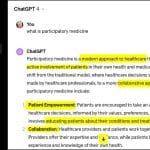When a medication causes a horrible side effect a patient usually turns to the prescribing physician for help. If the adverse reaction is listed in the prescribing information, then the doctor is more likely to recognize the problem as drug related. Too often, though, when the reaction is not clearly described in the package insert, the doctor may dismiss the idea that the problem could be caused by the medication. This is likely why doctors did not pick up on Vioxx-induced heart attacks and strokes.
It used to be that the only way the FDA learned about unexpected drug reactions was from the manufacturer or health care professionals. These reports were usually submitted on paper. In truth, though, physicians have no incentive to submit such reports. They are not rewarded and may actually have to spend hours chasing down details and answering questions from the manufacturer.
Patients, on the other hand, have a lot of incentive to report their drug problems. Many people are motivated to help others avoid experiencing the same complications. Now, there is a way for consumers to report adverse drug reactions directly to the FDA using a program called MedWatch (www.fda.gov/medwatch). This program has been available for some time, but most people are unaware that they can access it themselves on the Web.






Recent Comments